
As someone who probably loves the outdoors and frequently goes on camping trips, buying a camping trailer must have been the best investment, you would’ve made in a long while.
Sure, your wife may not have been too happy with you investing quite a hefty sum into getting a trailer that suited you best, but even she can’t deny how much easier and consequently, enjoyable camping trips must have become since getting the camper trailer.
It’s just a shame that you can’t go camping all year round, what with your job and other responsibilities holding you back, you’d most definitely have to leave your trailer unused for months on end.
Oh well, better just park it in the driveway until you need it again, right? Wrong. If you’re looking to store your camper trailer for a long time, then you need to make the proper arrangements.
Or you could be VERY disappointed the next time you open up your trailer to prepare for a camping trip you were eager to go on.
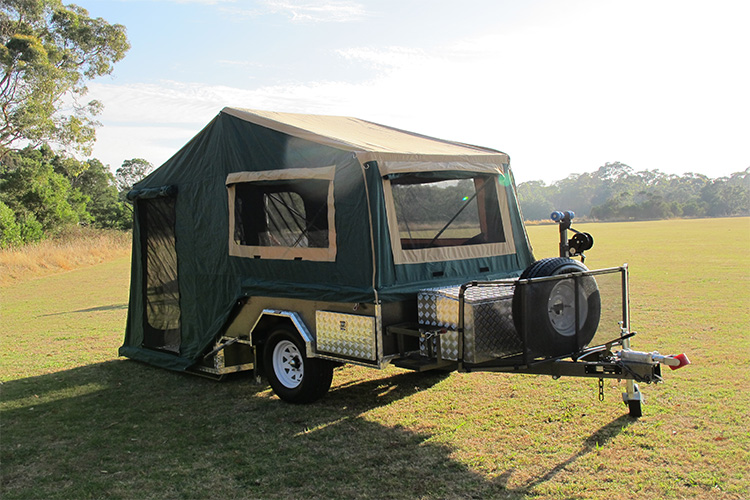
A lot, actually.
Let’s start with infestations. Not taking the time out to clean your cabinets of food and other perishable items could have you returning to a swarm of insects having firmly nested themselves in your camper trailer.
Or you could be looking at a possum or mouse infestation if you ignored that little hole in the corner of your trailer. Even microorganisms might not spare you, as you open up your trailer to discover that a fair bit of mould has settled in several places thanks to your carelessness.
If you’ve got a serious problem with pests or would like to take all of the precautions to keep them out, check out our blogs on how to keep pests out of your camper trailer.
You could even end up damaging your camper’s internal facilities. Not bothering to take care of the water pipes in your trailer could present you with a ruptured pipeline the next time you try to use it, something which is only topped off by a clogged toilet.
And if you left your battery connected to the camper when you stored it, you may return to find it completely dead and in need of a recharge or replacement, all of which just adds to your troubles.
So, it’s pretty safe to say that there are a lot of things you need to look out for and arrange before you can safely store your camper trailer. But before we tell you any of that, you first need to decide where you’re actually going to store your trailer.
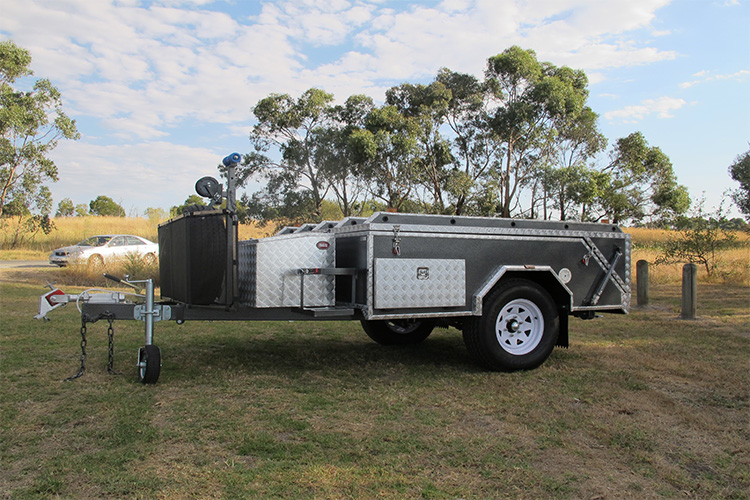
It’s more than likely you’ll be storing your camper trailer in your driveway or garage. After all, it’s the most convenient place to store your trailer and you don’t even have to pay rent for the storage space.
Storing your trailer at home also lets you maintain your trailer easily and carrying stuff in and out of your trailer when you need it is much less of a pain. But as laws evolve and circumstances change, something even minor like storing a camper trailer on your own property is becoming harder and harder for owners.
Though it might not necessarily be the case, your state may prevent you from storing your camper trailer in your driveway, or at least in the conditions, you can personally manage to keep it in. That and the fact that camper trailers parked in driveways and garages are a favourite target for burglars may make you seriously want to consider an alternative.
If you can’t store your camper trailer at your own house, then your next best bet is a storage garage, preferably one that specializes in storing RVs, camper trailers and all those kinds of vehicles.
These spaces provide you with a number of resources including tons of space to store your trailer and all the tools that go with it, plus even some space to walk in and maintain your trailer with relative ease.
Storage garages are also pretty secure and well-guarded, which means your trailer is in even lesser risk of being stolen. The area is also kept clean and maintained to a reasonable degree, so there’s only really a slim chance of mice and insects infesting your trailer, while in storage.
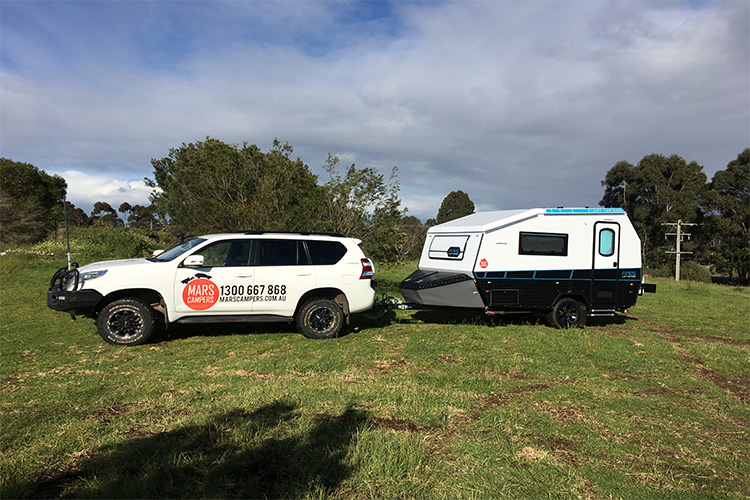
Now that you’ve decided on where to store your trailer, it’s time to actually prep it for storage so that you can sleep peacefully at night, knowing that nothing bad is going to happen to it in the next couple of months. Here’s a handy checklist so you don’t forget anything as you pack up your trailer for storage:
These ten steps are what you must do before you store your camper away till the next time when it is to be used. However, depending on the season you’re storing it in, there are a couple of extra steps you need to take.
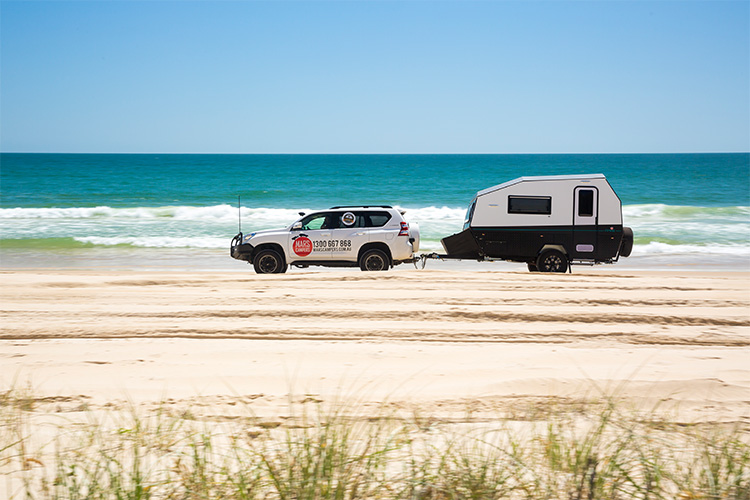
Summers mean heat and heat is not your trailer’s friend. While storing your camper under shade is recommended throughout the year, it’s even more important in the summers when the sun is at its most unrelenting phase of the year.
It would be wise to cover up your wheels to protect them from direct sunlight since rubber doesn’t do so well when exposed to the sun for long hours on end. Leaving a vent open is also important since you don’t want the inside of your trailer getting too hot in storage.
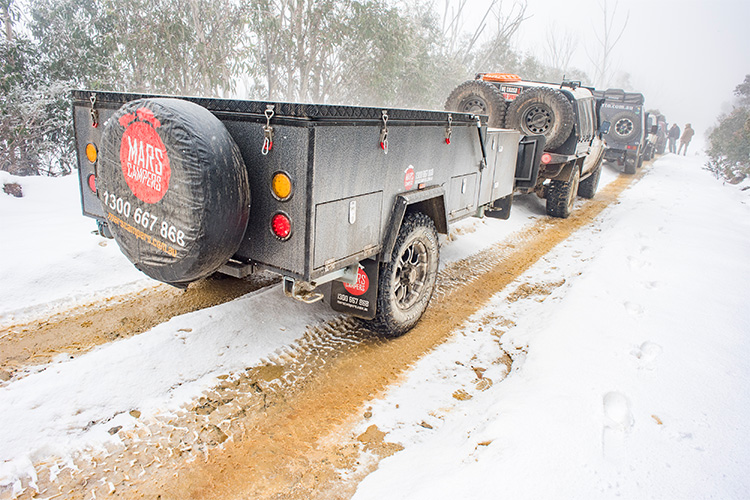
Prepping your camper for the winter, or winterizing it, as is the proper lingo, is a much trickier task. You have to be absolutely sure that your water lines and tank are completely drained, or you’ll risk them rupturing as the water inside expands as it turns to ice.
Washing the outside of your camper trailer (with special attention to cleaning wheel wells, awnings, and seals) is also a must before you store it away since this prevents the growth of mildew. For more read our blog on cleaning the outside of your camper trailer.
Take extra care when mouse proofing your camper trailer in the winters since pests are more likely to force their way inside to escape from the cold weather. Consider removing your gas cylinders, fitting the gas lines with caps to keep them covered.
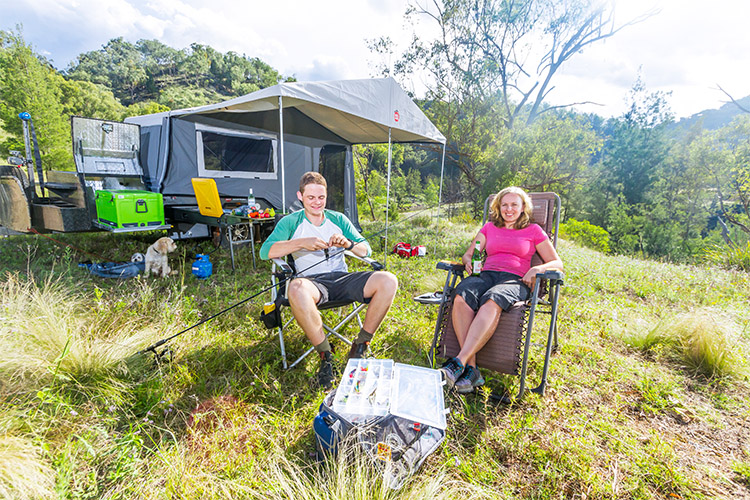
Even if your trailer wasn’t as expensive as others on the market when you bought it, it was still a sizeable investment, one you’d like to see undamaged quite a few years down the line.
Though it might cost you a little extra, seriously consider getting insurance for your trailer, and specifically ask for a clause that covers damage during storage months in your contract; it’s really the only way to prepare against unforeseen circumstances.
Apart from that, keep all the above points in mind to make sure your trailer remains in perfect shape throughout the working season, so that you’re able to enjoy any future trips once the vacations start!
Camper trailers need love and care. In return, they’ll show you years of support and service. If you’re thinking about upgrading, take a look at our range of camper trailers. If you need any help feel free to contact the Mars team for any questions.